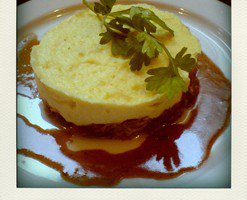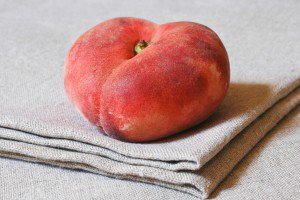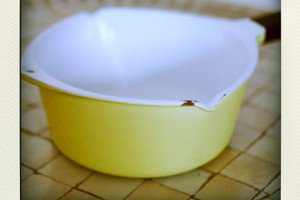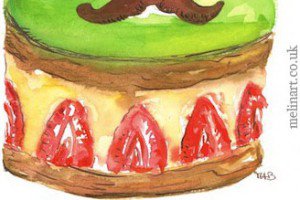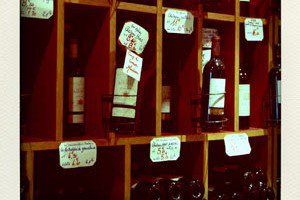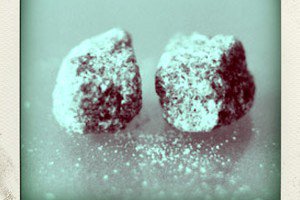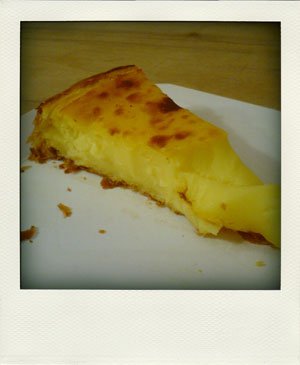
This is part of a series on French idiomatic expressions that relate to food. Browse the list of idioms featured so far.
This week’s idiom is, “En faire (tout) un flan.”
Literally translated as, “making a (whole) flan out of it,” it is a colloquial expression that means making a big deal out of something insignificant, blowing something out of proportion.
It is comparable to the English expressions, “making a mountain out of a molehill,” “making a song and dance about something,” and two edible idioms, “a storm/tempest in a teacup/teapot,” and “making a meal out of something.”
Example: “Si le plan de table ne lui va pas, il faut le changer, sinon il va en faire tout un flan.” “If the seating plan doesn’t suit him, we have to change it, otherwise he’ll make a whole flan out of it.”
Listen to the idiom and example read aloud:
(If no player appears, here’s a link to the audio file.)
This idiom is derived from the twentieth-century expression, “En faire (tout) un plat” (making a whole dish out of it), which also evolved into, “En faire (tout) un fromage” (making a whole cheese out of it). In all three cases, the idea is that the person takes what little there is, and turns it into something much more substantial: a few scraps into a whole dish; a little milk into a whole cheese; milk, eggs, and sugar into a whole flan.
You may also come across another version of this idiom, “Il n’y a pas de quoi en faire un flan” — there isn’t enough to make a flan out of it, or it’s not worth making a fuss about.
Note: Pictured above is half of an excellent flan from the Poilâne bakery, which, incidentally, won second place in the Figaroscope’s recent flan taste test.




